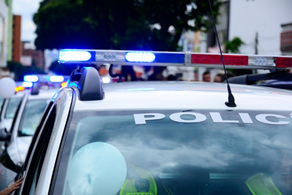
On June 27th, 2019, the U.S. Supreme Court released its opinion in Mitchell v. Wisconsin, ___ U.S. ___ (2019) holding in a very close 5-4 decision that the police officer’s warrantless seizure of a blood draw from an unconscious drunk driving suspect did not violate his Fourth Amendment right to be protected against unreasonable searches.
The case arose when police officers received report that the Defendant, who appeared to be drunk by other witnesses, had climbed into a van and drove off. The police later found the Defendant parked by a lake and stumbling about the shoreline while slurring his words. A preliminary breath test (PBT) registered a BAC level of 0.24. The police arrested him for operating while intoxicated and drove him to the police station. En route, the Defendant’s health condition deteriorated and he was instead driven to the hospital once he fell unconscious. Under Wisconsin’s implied consent law, the police officer read a standard statement to the unconscious Defendant providing a chance to refuse the BAC testing. Since the Defendant was unable to respond, the police officer then asked hospital staff to take a blood sample to give to law enforcement. The blood test revealed a BAC of 0.22 and the Defendant, who was still unconscious during the testing, was later charged with several drunk driving offenses.
The Defendant filed a motion to suppress the blood test evidence on the basis that it was illegally seized under the Fourth Amendment. However, the trial court denied his motion and a jury convicted him on all counts. The Wisconsin Supreme Court affirmed the convictions. The U.S. Supreme Court granted certiorari to answer the question whether an implied consent statute authorizing a blood draw from an unconscious motorist provides an exception to the Fourth Amendment warrant requirement.
The majority acknowledged that the U.S. Supreme Court has consistently upheld implied consent statutes as not invoking self-incrimination because the refusal only leads to license sanctions. There is a legitimate purpose to these laws because BAC evidence is time-sensitive, and the ability to get a blood draw or breathalyzer test immediately goes a long way towards combating drunk driving. In the instant case, the Defendant’s “stupor and eventual unconsciousness also deprived officials of a reasonable opportunity to administer a breath test.” The officer was able to secure a PBT, but not yet obtain an evidence-grade result on appropriate machinery. “[I]t was reasonable for [the police officer] to seek a better breath test at the station; he acted with reasonable dispatch to procure one; and when [the Defendant]’s condition got in the way, it was reasonable for [the officer] to pursue a blood test.”
The majority recognizes a “compelling need” for blood-testing drunk-driving suspects whose condition deprives officials of a reasonable opportunity to conduct a breath test. First, highway safety is a vital interest. Second, specified BAC limits make a big difference in fighting those harms that come from intoxicated driving. Third, enforcing BAC limits requires a test that is accurate enough to stand up in court. But does this justify a warrantless search because there is no time to secure a warrant? The majority opines that an exigent circumstance to create a warrant exception to the Fourth Amendment exists when “(1) BAC evidence is dissipating and (2) some other factor creates pressing health, safety, or law enforcement needs that would take priority over a warrant application.” Both conditions are met when a drunk-driving suspect is unconscious, so a warrantless blood draw is lawful. Therefore, the Defendant’s convictions stand.
Justice Thomas concurred with the majority but opposes the adoption of a potentially confusing new rule for this exigent circumstance. He believed that the blood draw would have been permissible without a warrant on the basis that the destruction of evidence was at risk.
Justice Sotomoyor, in a dissenting opinion joined by Justices Ginsburg and Kagan, dissented on the basis that there is nothing to suggest that there was an exigent circumstance. Whether or not there is a warrantless exception for a blood draw is to be determined on a case-by-case basis on the totality of the circumstances. “Unless there is too little time to do so, police officers must get a warrant before ordering a blood draw.” In fact, at both the suppression hearing and the jury trial, the police officer never once testified that there was no time to get a warrant. While the alcohol level in a person’s blood does began to dissipate once the alcohol is fully absorbed, it does so over time and in a gradual and predictable manner. In addition, technology advances have made the process of applying for a search warrant faster and more expeditious than ever. The police officer merely made it sound like an inconvenience. The dissent would have held that the exigency issue was waived and therefore abandoned.
Justice Gorsuch, in a separate dissenting opinion, stated that the majority avoided the question of the implied consent law altogether and upheld the conviction on an exigent circumstance basis. Since the parties and the lower courts did not argue the exigent circumstance in the prior proceedings, it should not have been considered now.
The U.S. Supreme Court struck a powerful blow against Fourth Amendment protections available and upheld a very aggressive implied consent law that permits blood draws against unconscious but non-consenting drivers. It is becoming increasingly more difficult to suppress evidence in these kinds of matters due to the court system’s strong support of the anti-drunk driving policies. Motorists are well advised to think twice before having a few drinks and driving home because even an unconscious driver no longer has a legal shield against warrantless searches of blood alcohol level.





